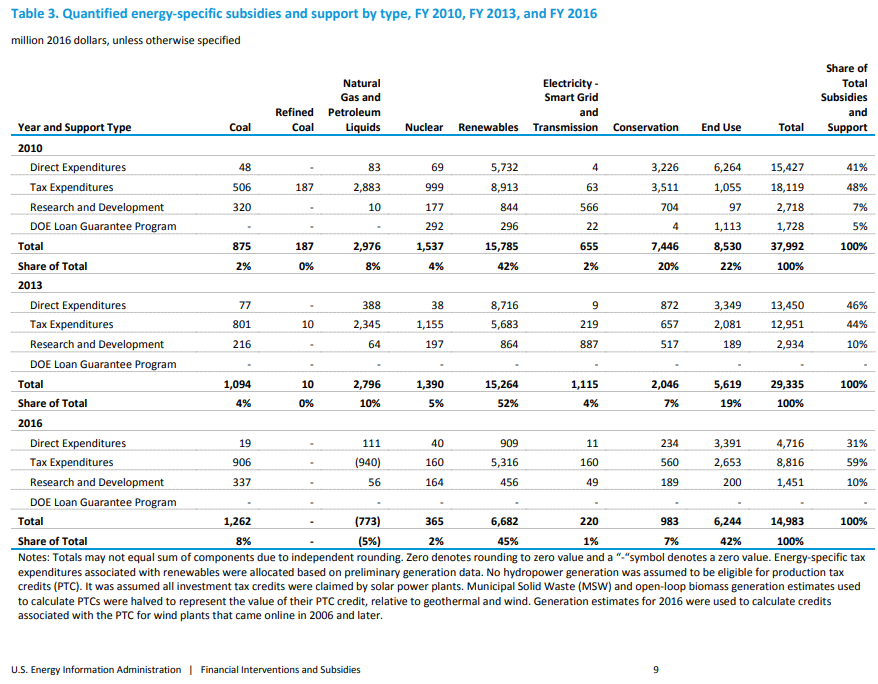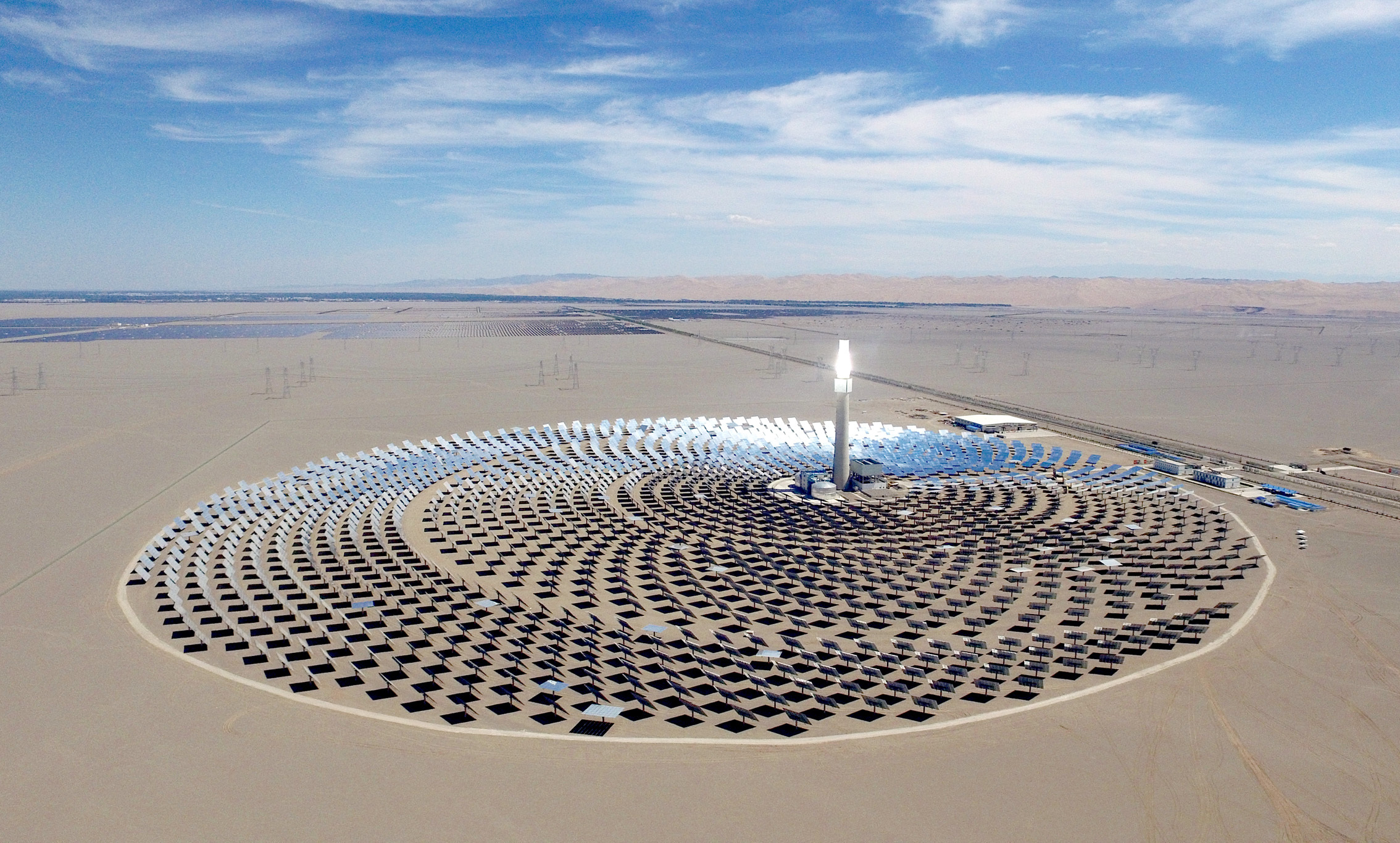I'm all for nuclear power. We need to get off gas and coal ASAP, and nuclear is a reliable baseload power source that doesn't require massive arrays of lithium or lead batteries, and doesn't fluctuate with the rainy season. Ideally, I'd like us to go to more advanced nuclear power like molten salt reactors, but even light water is appreciated. I wouldn't mind it even in my own backyard. We need reliable energy.
Sounds good, just make sure the industry can do this on its own, without government subsidies. When will the industry find some way to insure itself without the US government's help? Oh, and when will become cheaper than renewables? Oh, and how about the radioactive waste? When will it take responsibility for that without government help? Oh, and when will it find a source for fuel that isn't from Russia?
Imo it should be the other way around. Nuclear plants should be government run.
Shouldnt matter much either way because they have to have so many regulations anyways..
I am of the same mind that they should be government run because electricity is a necessity for modern life. Electricity should not be produced for profit. Yes it would be nice for it to bring in more than it cost in order to fund expansion and upgrades, but shareholders shouldn't be involved.
I personally believe it should basically be another USPS, but hopefully consistent and safe.
Providing power to the US is the government's responsibility in the same way that governments funding maintenance of public roads, paying for teachers, and paying for firefighters doesn't always generate money yet is subsidized or wholly paid for by a government entity. The fact that the government doesn't have to fully pay for the nuclear plant (because its offset by the money the plant makes) makes it less that the government has to spend. If anything, I'd like the government to completely take over nuclear plants so that there's less profits for private entities. Yes nuclear is more expensive than renewables, but an already existing nuclear plant is cheaper than a new one, which is way better than fossil fuels, the real enemy. Not to mention, in how long will renewable take to make up the almost 10% of energy that the plant supplies to California? Instantly? no. It takes time, and until that time, we need all the energy generation we can get, ESPECIALLY if its not a fossil fuel based one. Radioactive waste? Definitely a problem, in a couple hundred years. Right now, all the radioactive waste the US has ever made would fill up a football field, 10 yards deep. Not really a high priority problem especially compared to the risk that global warming risks.
All in all, it feels like we shouldn't let the search for a perfect solution, impede temporary good enough solutions.
"Providing power to the US is the government’s responsibility..." Where did that idea come from? That's nonsense. Yes, some municipalities run their own power companies, but the Diablo Canyon plant is privately owned.
this on its own, without government subsidies. When will the industry find some way to insure itself without the US government’s help? Oh, and when will become cheaper than renewables?

If you want to talk about subsidies, let's talk about how renewables (and even fossil fuels) get MORE subsidies than nuclear energy. Tell us, why is it okay for renewables to get so much subsidies but it's wrong when nuclear gets a fraction of that? Oh and by the way, nuclear doesn't need subsidies to compete with renewables. Wanna know how I know? Because every nuclear plant that was shutdown in the US was replaced by fossil gas, NOT renewables. Fossil fuels get the biggest subsidy which is not having to pay the health consequences of pollution and the climate consequences. But sure, let's waste time about renewables this and nuclear that while fossil fuel keep fucking us up the ass instead of just using renewables and nuclear where each make sense to decarbonize. I don't care how many good intentions you might have, your narrative holds back the energy transition, it doesn't help it in the least bit, especially when we are talking about nuclear plants that are ALREADY BUILT and operating. What do you want? have diablo canyon replaced with more fossil gas just like indian point and san onofre? Because that's what happened and that's what is going to happen again. https://www.eia.gov/analysis/requests/subsidy/pdf/subsidy.pdf
why is it okay for renewables to get so much subsidies
Renewables are a nascent technology and promise a future that doesn't leave a legacy of radioactive waste. Nor are nuclear power plants ripe targets for terrorist attacks. With the help of public investment, the cost of renewables has decreased significantly.
In contrast, after decades of government support, the cost of nuclear power has not decreased.
Save your time. Your support for nuclear is unfortunately preceded by decades of lies by other nuclear supporters.
how is a salt reactor better? i tought reactors were all just glorified water boilers?
It is, but it's safer, since it's a fuel salt loop that has radioactive fuel mixed in, which is too dilute to melt down. It powers a second, independent molten salt loop that goes to a water boiler elsewhere in the system. This has a variety of benefits, and also depends on the tech. But one, it stops meltdowns. And two, if the salt loop or boilers fail, it doesn't release superheated, radioactive steam since the boiler is elsewhere in the complex.
Some can also recycle radioactive fuel that is already spent too.
Molten salt technology also has other benefits, nuclear energy aside. In solar towers with molten salt technology, it boils salts which then power a steam turbine. The salts are fucking hot, and stay hot enough to boil water for 12 hours after the sun has stopped shining. In the morning, some fuel is used to heat up the salts in prep for the sunlight. So, while it does use a bit of carbon, it provides reliable baseload energy that can serve the grid uninterrupted at night/during storms :)
Can't get the pic to link right. Here's a solar tower

Numbers wise, it probably makes sense.
California is so huge and growing all the time, that while they're updating the energy grid and installing new truly sustainable energy, the electricity for two and a half million houses that one power plant provides is probably a huge help in the intermediary time.
"...probably a huge help..."
No, not much actually.
According to California Energy Commission 2021 data (https://www.energy.ca.gov/data-reports/energy-almanac/california-electricity-data/2021-total-system-electric-generation), nuclear accounted for only 9.3% of total generated for the state. Solar and wind each beat that. All we have to do is reduce usage by 10% and we can finally decommission a facility that's producing deadly radiation waste - that sits near a fault line.
Five years of production of a guaranteed ten percent of your power already being used while you transfer energy grid tech is pretty significant and a much simpler hurdle than reducing ten percent of your power across the grid.
Given that the average Californian household uses around 7200kWh a year a single facility providing 9% of the state's energy needs or 2.89 million homes isn't that bad...
For a 1.2 billion dollars investment, that is about 415 dollars per household to keep it running for 5 years more.
Not saying that new nuclear generators are the best way since we have better alternatives, but you can't knock the benefits that nuclear energy has given us. If we were to reduce energy use by 10% today wouldn't we want to burn that much less natural gas and that little share of coal first if we cared about health impact? This buys us more time to have renewables displace the most harmful of generation methods.
If it's such a good investment, why aren't the power companies making it? Why does the US government have to pour money into their profit-making venture?
Because public opinion is against nuclear plants because people think that the current generation of plants have the same safety issues as gen 1 and 2 did.
Nuclear supporters always seem to be saying the new systems are different. But the same problems remain. The world needs to realize that nuclear power is a lie made up for short-term profit.
The new systems are drastically different, and can even run on spent fuel from older generations.
Thats why they dont make enough money? Weird reason when everyone still needs to buy your product either way..
Everyone hates war, but munition manufacturer are rubbing their hands because they know you need their stuff anyways.
Because their bottom line is profits only, and they can produce the power cheaper with carbon spewing natural gas turbines.
The good investment is having a massive generator of carbon-free energy, even if it loses money otherwise.
It's about the term of investment, since these massive projects take decades and most private investment can't afford to think that far in the long term.
If it was all about profit-making, coal, oil and gas get you way better return on investment than renewables (25% compared to 5-6%), even if in the long term it is harmful (increased healthcare spending treating cancer and environmental damage), and an unsustainable model.
As for why the US government needs to pay the private sector to do a job it could just do itself? Well that's for Americans to answer, but what I see is a lot of waving hands around nebulous "efficiencies".
Last operating nuclear power plant.
Which means this one plant provies 9.3% of the state's power generation. It's entirely reasonable to think that cutting that power generation without having other sources to replace it with would be a "bad idea," especially considering how Enron royally fucked California by playing games with power.
The grid really needs to be decentralized. Neighborhood backup batteries and solar panels would go a long way towards this.
I feel like I watched a YouTube video about some guy who was working on commercializing personal home thorium power plants because they were totally safe but produced more power than you would ever need?
We should be moving in that direction, just security wise.
How many solar panels and backup batteries would that buy? At $20k per home, that’s 50000 homes that could have their own power system.
According to a couple of articles, a nuclear plant like this can power 500000 homes. So not too shabby of an investment?
And those 50,000 systems would be operational for 20+ years. That kind of investment would bolster the solar industry and further raise public awareness of the beauty of having their own system.
In contrast that money now is going to support poor, short-term profit, decisions by large corporations. After ~2030 we'll still be in the same mess we currently are: power companies begging for handouts to decommission the plant and then leaving the US government to watch over the waste in perpetuity.
That is the definition of a shabby investment.
If it was any other kind of non-renewable I'd agree with you but nuclear produces far less pollution and it's reliable so as long as it produces the power there really shouldn't be a problem. Everyone needs energy and the less that's made through fossil fuels the better.
Not only that, the nuclear plant will be producing power at its stated capacity 80% of the time or more, only coming offline for maintenance and refueling. Those solar panels will only produce its stated capacity 30% of the time of so.
Haven't seen a nuclear power plant that isn't basically paid for by the taxpayers and the people that need to buy that energy even more.
Remember, only actually renewable energy is good.
Nuclear is an important stop gap in the process of replacing fossil fuels.
Trouble is, we're now so short of time that there's probably little benefit from making loads of new nuclear plants as they take too long to build.
A top gap cant take 10 years to build, its faster, more efficient and more economically to just go straight to renewables 100% shure, already standing ones don't need to be shut down, but we shouldn't focus on making new ones and decommission those that get too old (seriously looking at France here)
That's is precisely my point.
We're out of time. We crossed short of time 10+ years ago.
So we should all just give up doing anything then because it's too late?
No.
Because renewable energy sources are too expensive?
Nuclear power is the best option available and I'm confused why you're confused about that.
IIRC, Diablo Canyon, as a base load, was also created to lift a whole bunch of water backwards across the Sierra Nevada mountains to send south towards Los Angeles. In its absence, moving water around the state could become increasingly challenging.

If you want to talk about subsidies, let's talk about how fossil fuels and renewables get MORE subsidies than nuclear energy. https://www.eia.gov/analysis/requests/subsidy/pdf/subsidy.pdf
Now do cumulative subsidies over the last 80 years. Nuclear had its shot and failed.
Please read my other comment here https://feddit.nl/comment/6219531 But the TLDR of where I'm going is: This subsidy is barely leveling up the playing field between fossil fuels and nuclear. Even if we do a cumulative comparison between the two, fossil fuels had got much more, order of magnitude even. Not a single nuclear plant that was shut down in the US was replaced by renewables. They were all replaced by new fossil gas or energy imports generated by coal.
This subsidy is barely leveling up the playing field between fossil fuels and nuclear... Not a single nuclear plant that was shut down in the US was replaced by renewables.
Nobody cares about these points. Instead we care about getting away from power sources that threaten our future.
So, you're then saying that nuclear is somehow more threatening to our future than fossil energy is? Wow. Thanks for being clear where you stand I guess.
Just for the record: fossil fuels not only change our planet's climate, it also kills millions of people each year due to air pollution.
getting away from power sources that threaten our future.
Which are fossil fuels and fossil fuels alone:

Climate - truthful information about climate, related activism and politics.
Discussion of climate, how it is changing, activism around that, the politics, and the energy systems change we need in order to stabilize things.
As a starting point, the burning of fossil fuels, and to a lesser extent deforestation and release of methane are responsible for the warming in recent decades:

How much each change to the atmosphere has warmed the world:

Recommended actions to cut greenhouse gas emissions in the near future:

Anti-science, inactivism, and unsupported conspiracy theories are not ok here.
